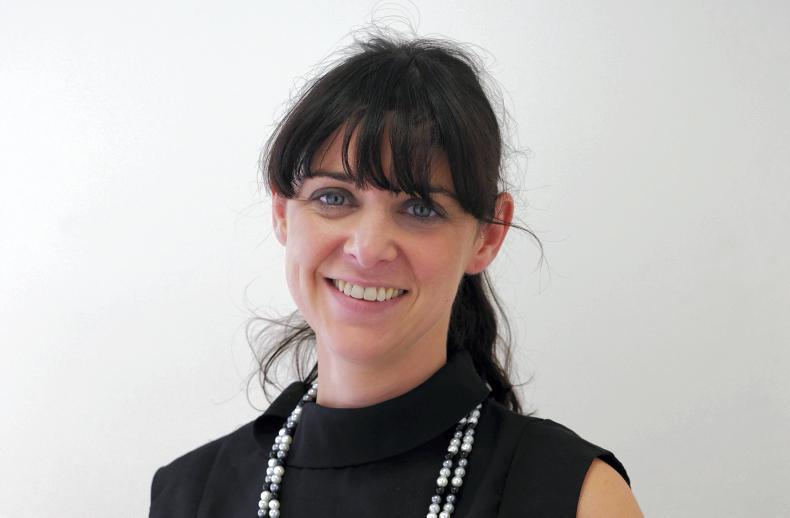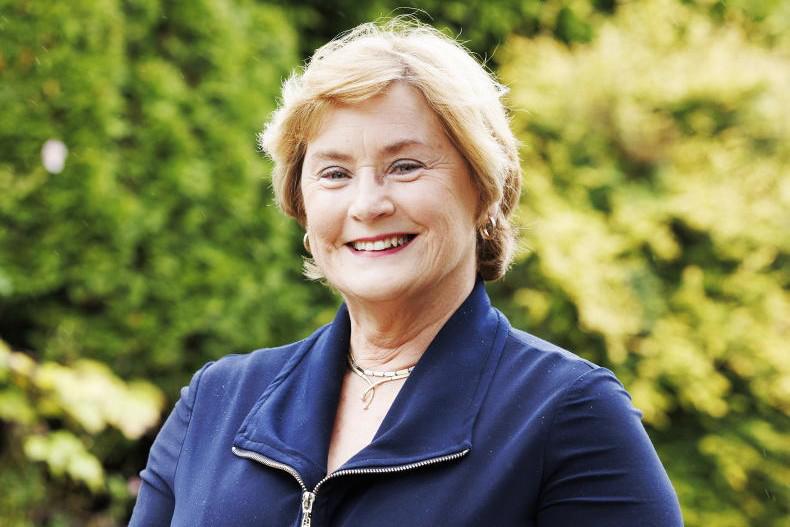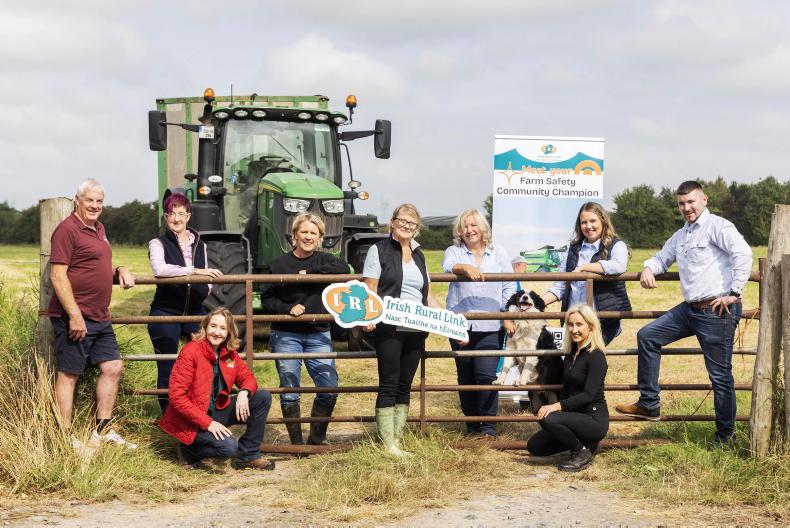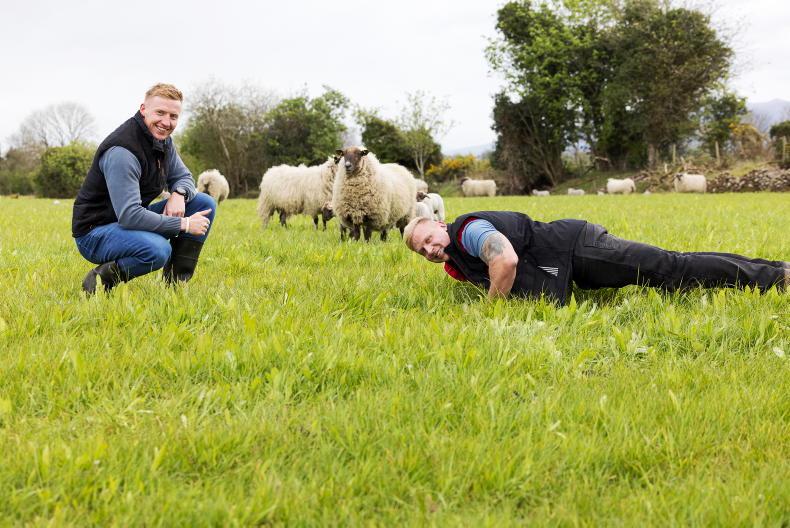Woman and Agriculture planning has commenced for 2019. The start of this planning took the form of a fact-finding mission to Pippa’s Fashion Factory last Saturday by myself and Ciara Leahy, our consumer editor.
The question on our minds: “What encourages 400 women of a variety of ages and backgrounds to pay €100 to see Pippa and her friends – models, make-up artists and skincare professionals – talk about beauty products and high-street fashion?”
A former model, entrepreneur Pippa O’Connor is a serious lifestyle influencer in Ireland. She shares her tips and recommendations daily with an estimated 500,000 people across her blog and other social media channels and these events are a complete sell out wherever she hosts them.
What I witnessed was an outlet for women to get away from the mundanities of their regular lives, get dressed up for some light entertainment and have a drink with their friends. Everything featured is for sale and that can make for a great day out, maybe not enough substance for Woman and Agriculture but some ideas nonetheless.
In fairness, Pippa’s line of promotion is very much based in the beauty world and the tips are positive, should you decide to invest in them. She does what she does well and keeps to her area of expertise.
Fighting talk, but unfortunately necessary as there is a concerted effort amongst some to see our agri industry damaged in the minds of consumers
This is well away from where the agriculture industry finds itself in difficulty in relation to negative social media commentary. “We won’t be driven off the land by keyboard warriors, quacks or lifestyle gurus.” So said IFA president Joe Healy in his address at the IFA AGM last week. Fighting talk, but unfortunately necessary as there is a concerted effort amongst some to see our agri industry damaged in the minds of consumers.
It’s the start of #Februdairy, the dairy industry’s social media fight back against this negative commentary. But why is this necessary? Because it is now very common for unqualified social media bloggers to pick a sexy topic – for example food and farming – and use either scare tactics or misinformation to gain followers.
The purpose of this is driven by the potential for profit in the digital age but this is not always clear or divulged.
The question is: how much trust people can or should we have in those that they follow on these channels?
Fyre music festival has become symbolic of when an event/product/lifestyle is promoted on Instagram by ‘social media influencers’ and goes wrong. The proposed music festival, which was to take place in 2017 on a Bahamian Island, was a catastrophic failure. In the end, the chief organiser was sentenced to six years in prison and fined €26m for wire fraud.
One of the most interesting elements of this was the influence exerted by some major global socialite names. People paid for tickets to this event on the back of endorsements from influencers who initially did not disclose that they had been paid to promote the event.
It can be argued that they were paid to do a job and they did that but ultimately simply by acting as enablers and with a complete lack of accountability, a lot of people lost huge sums of money.
The question is: how much trust people can or should we have in those that they follow on these channels? And is there a moral obligation on those who have these significant followings (many of which are young people) to be responsible in what they say or what they promote, or is it simply up to us to be more astute?
Read more
A friendship forged on a long history
100 years and the only constant is change
Woman and Agriculture planning has commenced for 2019. The start of this planning took the form of a fact-finding mission to Pippa’s Fashion Factory last Saturday by myself and Ciara Leahy, our consumer editor.
The question on our minds: “What encourages 400 women of a variety of ages and backgrounds to pay €100 to see Pippa and her friends – models, make-up artists and skincare professionals – talk about beauty products and high-street fashion?”
A former model, entrepreneur Pippa O’Connor is a serious lifestyle influencer in Ireland. She shares her tips and recommendations daily with an estimated 500,000 people across her blog and other social media channels and these events are a complete sell out wherever she hosts them.
What I witnessed was an outlet for women to get away from the mundanities of their regular lives, get dressed up for some light entertainment and have a drink with their friends. Everything featured is for sale and that can make for a great day out, maybe not enough substance for Woman and Agriculture but some ideas nonetheless.
In fairness, Pippa’s line of promotion is very much based in the beauty world and the tips are positive, should you decide to invest in them. She does what she does well and keeps to her area of expertise.
Fighting talk, but unfortunately necessary as there is a concerted effort amongst some to see our agri industry damaged in the minds of consumers
This is well away from where the agriculture industry finds itself in difficulty in relation to negative social media commentary. “We won’t be driven off the land by keyboard warriors, quacks or lifestyle gurus.” So said IFA president Joe Healy in his address at the IFA AGM last week. Fighting talk, but unfortunately necessary as there is a concerted effort amongst some to see our agri industry damaged in the minds of consumers.
It’s the start of #Februdairy, the dairy industry’s social media fight back against this negative commentary. But why is this necessary? Because it is now very common for unqualified social media bloggers to pick a sexy topic – for example food and farming – and use either scare tactics or misinformation to gain followers.
The purpose of this is driven by the potential for profit in the digital age but this is not always clear or divulged.
The question is: how much trust people can or should we have in those that they follow on these channels?
Fyre music festival has become symbolic of when an event/product/lifestyle is promoted on Instagram by ‘social media influencers’ and goes wrong. The proposed music festival, which was to take place in 2017 on a Bahamian Island, was a catastrophic failure. In the end, the chief organiser was sentenced to six years in prison and fined €26m for wire fraud.
One of the most interesting elements of this was the influence exerted by some major global socialite names. People paid for tickets to this event on the back of endorsements from influencers who initially did not disclose that they had been paid to promote the event.
It can be argued that they were paid to do a job and they did that but ultimately simply by acting as enablers and with a complete lack of accountability, a lot of people lost huge sums of money.
The question is: how much trust people can or should we have in those that they follow on these channels? And is there a moral obligation on those who have these significant followings (many of which are young people) to be responsible in what they say or what they promote, or is it simply up to us to be more astute?
Read more
A friendship forged on a long history
100 years and the only constant is change









SHARING OPTIONS